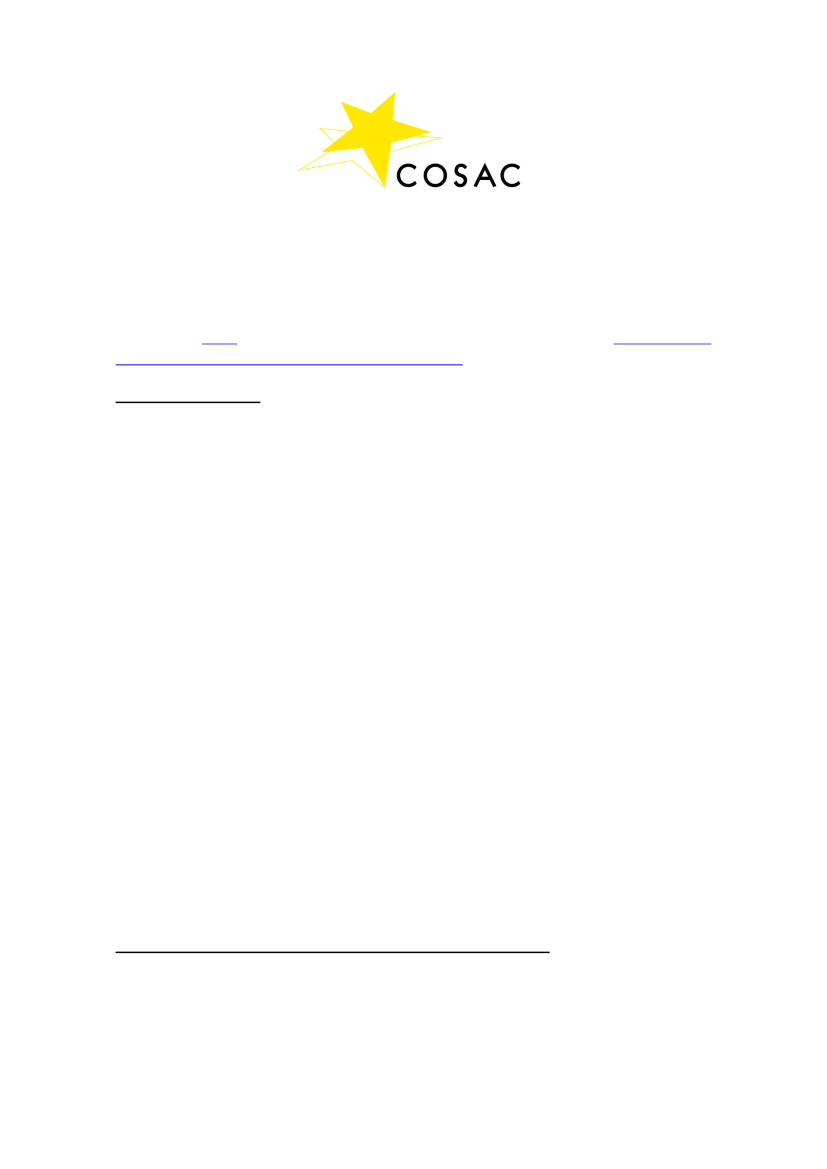
MINUTES OF THE LXXII COSAC
B
UDAPEST
, H
UNGARY
, 28-29 O
CTOBER
2024
Note:
The text of keynote interventions which have been shared with the Presidency will be
published on
IPEX.
A video recording of the full meeting is available via the
webpage of the
Parliamentary Dimension of the Hungarian Presidency.
OPENING SESSION
Mr TESSELY opened the LXXII COSAC by welcoming delegations. He then gave the floor
to Mr László KÖVÉR, Speaker of the Hungarian
Országgyűlés.
In his speech, Mr KÖVÉR recalled that the first Hungarian Presidency of 2011 faced fewer
challenges, than it does in 2024. He urged European politicians to avert the danger of social
and economic destabilisation. He informed his audience that the Presidency events organised
by the Hungarian
Országgyűlés
were attended by hundreds of members of parliaments of
Member States, candidate countries and other invited countries, as well as representatives of
the European Parliament. The Speaker added that the highlight of the semester was the
organisation of the LXXII COSAC. He conveyed the greetings of the Prime Minister of
Hungary, Mr Viktor ORBÁN, who unfortunately had to cancel his participation due to an
official visit to Georgia. The Speaker of the Hungarian National Assembly then introduced the
topics of the sessions of the LXXII COSAC. Commenting on the topic of the 15th anniversary
of the Lisbon Treaty, he argued that national Parliaments do not enjoy the role in EU decision
making as they ought to, which he attributed to the Commission’s effort to take away
competences from Member States. He reminded COSAC participants on the European
Citizens’ Initiative (ECI) - another innovative tool introduced by the Lisbon Treaty - and said
that the Commission often rejects these for political reasons, as happened with the Minority
Safe Pack initiative. Commenting on the session on demographic trends, Mr KÖVÉR warned
against more migration to Europe and suggested instead to implement family friendly policies
by Member States, aiming at demographic growth. On the topic of European security and
defence, he stressed the need for enhanced external border protection, curbing illegal migration,
increasing internal security and accelerating enlargement with the countries of the Western
Balkans.
PROCEDURAL ISSUES AND MISCELLANEOUS MATTERS
Mr TESSELY presented the draft agenda for the LXXII COSAC plenary meeting, which was
adopted without any comments. He then went on to report from the Troika meeting the
preceding day. The Troika had made significant progress on and agreed to a new draft of the